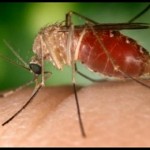The Florida Department of Health (DOH) emphasizes the importance of protecting against mosquito-borne diseases during the summer rainy season, which include peak mosquito activity months. DOH works with partner agencies, including the Florida Department of Agriculture and Consumer Services, Florida Fish and Wildlife Conservation Commission, mosquito control agencies, and state universities year-round to monitor for the presence of illnesses carried by mosquitoes including West Nile virus infections, Eastern Equine Encephalitis, St. Louis encephalitis, malaria and dengue.

DOH advises the public to remain diligent in protecting themselves from mosquito bites by following the “5 D’s,” which are:
- Dusk and Dawn – Avoid being outdoors when mosquitoes are biting.
- Dress – Wear clothing that covers most of your skin.
- DEET – Use repellents containing DEET (N,N-diethyl-meta-toluamide, or N,N-diethyl-3-methylbenzamide). Picaridin, oil of lemon eucalyptus, IR3535 and permethrin are other repellent options.
- Drainage – Check around your home to rid the area of standing water, which is where mosquitoes can lay their eggs.
Using repellent can help protect against being bitten by a mosquito. Follow these tips for correct repellent use:
- Read label directions carefully for the approved usage before applying a repellent to skin. Some repellents are not suitable for children.
According to the CDC, mosquito repellents containing oil of lemon eucalyptus should not be used on children under the age of 3 years. DEET is not recommended on children younger than 2 months old.
- Products with concentrations of up to 30 percent DEET are generally recommended. Mosquito repellents containing picaridin, oil of lemon eucalyptus, or IR3535 can also be applied directly on skin. Permethrin can be used on clothing.
- Apply insect repellent to exposed skin, or onto clothing, but not under clothing.
- Infants should be kept indoors or mosquito netting should be used over carriers when mosquitoes are present.
DOH also offers these tips for eliminating mosquito breeding sites around your home:
- Clean out eaves, troughs and gutters.
- Remove old tires or drill holes in those used in playgrounds so water can drain.
- Turn over or remove empty pots.
- Pick up all beverage containers and cups after use.
- Check tarps on boats or other equipment that may collect water.
- Pump out bilges on boats.
- Replace water in birdbaths and pet or other animal feeding dishes at least once a week.
- Change water in plant trays, including hanging plants, at least once a week.
- Remove vegetation or obstructions in drainage ditches that prevent the flow of water.
Most people who become sick from mosquitoes have mild symptoms like headache, fever, dizziness and fatigue, but more severe symptoms are possible. DOH urges anyone with severe symptoms to consult their primary care physician or seek immediate medical care. Physicians should contact their county health department if they suspect an individual may have a mosquito-borne illness. DOH laboratories provide testing services for physicians treating patients with clinical signs of mosquito-borne disease.
The mission of the Department of Health is to promote, protect and improve the health of all people in Florida. For more information on mosquito-borne illnesses, visit DOH’s Environmental Health Web site at http://www.doh.state.fl.us/Environment/medicine/arboviral/index.html or call your local county health department.
Monitoring wild bird deaths can help officials track the spread of some mosquito-borne diseases. Anyone who discovers a dead bird is encouraged to report it on the Florida Fish and Wildlife Conservation Commission’s website at www.MyFWC.com/bird/.


